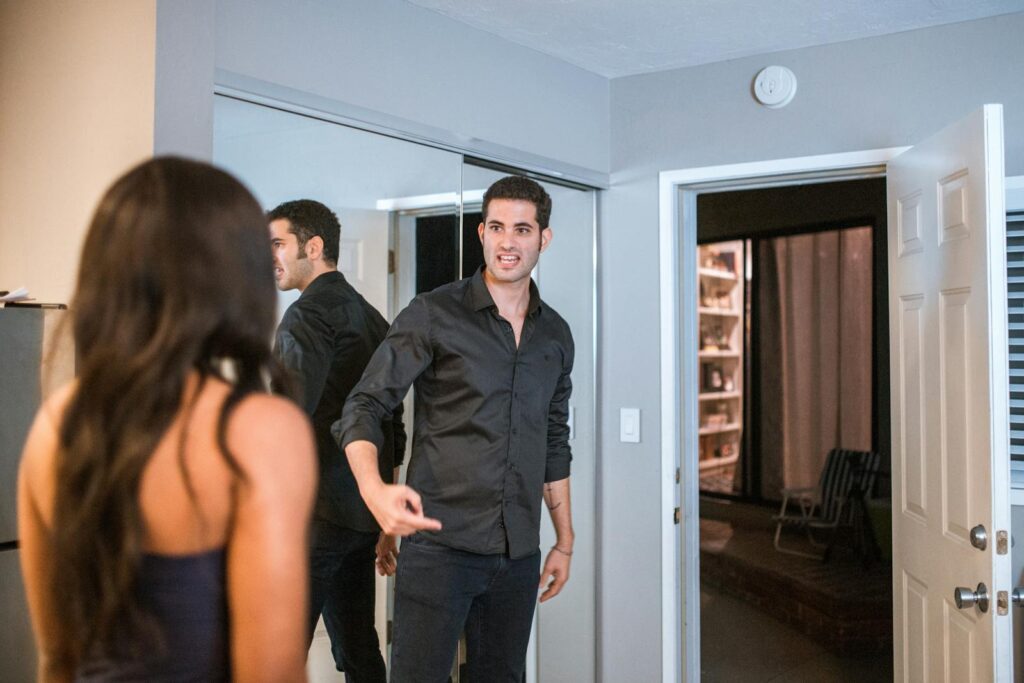
Relationships are very tricky, and sometimes people aren’t fully honest, even when they mean well. Lies can be small or big, but they affect trust and closeness. Not all dishonesty is malicious, as sometimes it’s about avoiding conflict, saving feelings, or hiding insecurities. Here are 15 common lies people tell in relationships and why they happen.
“I’m Fine”

This is the most common lie in relationships. When something bothers someone, they often say “I’m fine” instead of opening up. It feels easier than starting a conversation about hurt feelings, disagreements, or insecurities. Saying this protects them in the short term, but over time, it can create distance. Partners may feel shut out, and the truth stays hidden until things build up too much.
“I Don’t Care”

Sometimes people act like they don’t care about small details or conflicts, even when it matters a lot. They might pretend not to mind where to eat, what movie to watch, or how something was handled. It feels safer to avoid drama, but it can make the other person feel unimportant. Deep down, most people care very much—they hide it to avoid tension.
“I’ll Change”

Promising to change is another common lie. One partner may claim they’ll adjust habits, attitudes, or behavior to make the relationship work. The intention might be genuine, but lasting change is much harder than it sounds. When actions don’t match words, disappointment grows. Saying “I’ll change” can temporarily soothe conflict, but it often doesn’t solve the real problem.
“I’m Not Jealous”

Jealousy can feel embarrassing or insecure, so many people deny it. They say they’re not jealous even when they really are. Pretending this emotion doesn’t exist seems easier than admitting vulnerability. But hiding jealousy leads to passive-aggressive behavior or unspoken tension. Being honest about these feelings creates much healthier communication.
“I Haven’t Thought About It”

People claim they haven’t thought about something to avoid conflict or pressure. Maybe it’s about future plans, arguments, or big decisions. Saying this protects them from immediate tension but creates uncertainty for the partner. It can make someone feel ignored or unvalued, even when that wasn’t the intent. Most of the time, they have thought about it—they’re just avoiding the conversation.
“I Don’t Mind”

This is another lie rooted in avoiding conflict. People might say “I don’t mind” about plans, activities, or opinions that they actually care about. It feels easier than risking an argument. Over time, it builds resentment or makes partners feel disconnected. Being honest, even if it’s uncomfortable, is much healthier than pretending indifference.
“I’m Too Busy”

Work and responsibilities can be very overwhelming, but sometimes “I’m too busy” is a way to avoid intimacy or conversation. People use it to dodge tough talks, emotional vulnerability, or time together. While life really can be hectic, it masks a fear of conflict, discomfort, or even commitment. Honesty about availability creates a better connection than excuses.
“I’m Happy the Way Things Are”

Sometimes people lie about being content to avoid change or confrontation. They might feel frustrated, unfulfilled, or lonely, but they say they’re happy to keep the peace. Pretending contentment feels easier in the moment, but it prevents growth and honest communication. Over time, hidden dissatisfaction can turn into resentment if it’s never addressed.
“I Don’t Hold Grudges”

People often claim they’ve forgiven and moved on when they really haven’t. It feels easier to say forgiveness than to deal with lingering hurt. Bottling emotions might seem polite, but it can build emotional distance. Honest conversations about lingering feelings are much healthier than pretending nothing bothers you.
“I Don’t Need Space”

Everyone needs a little personal time, but some people lie about it. They claim they’re fine spending all their free time together, even when they secretly need space. This can lead to feeling smothered or burned out. Saying you need alone time doesn’t mean you care less—it just helps maintain a healthy balance in the relationship.
“I Understand Everything”

Sometimes one partner pretends they get what the other is feeling or thinking. They want to seem supportive or in tune, but they might be far from it. Saying “I understand” can prevent meaningful discussion and emotional connection. Admitting that you don’t fully get it and asking questions instead creates much stronger trust and closeness.
“I Don’t Care About the Past”

People say the past doesn’t matter, even when it still affects them. Old relationships, mistakes, or memories can linger, and pretending otherwise is a way to avoid conflict. Acknowledging the past and discussing how it influences the present builds understanding, while lying about it leaves unresolved tension in the relationship.
“I’ll Be Honest Later”

Some people delay honesty, thinking that it’s way better to wait or avoid an argument. They might promise to be truthful later, but the moment passes, and the issue never gets addressed. This pattern can break trust over time. Being honest when it matters most is much better than putting it off.
“I Never Think About Other People”

Some people lie about not noticing others or finding anyone attractive. It’s common in relationships when one partner wants to seem loyal or avoid jealousy. Noticing others is pretty natural, but pretending it never happens is completely dishonest. Hiding small attractions might feel protective, but honesty about feelings builds trust instead of pretending perfection.
“I’m Fine Alone”

Some swear they’re totally fine without a partner, even when they crave a deep connection or support. They want to appear independent or avoid the feeling of vulnerability. But pretending that you feel nothing can create a lot of emotional distance. And accepting you want closeness and support improves your relationship way more than denying it.

